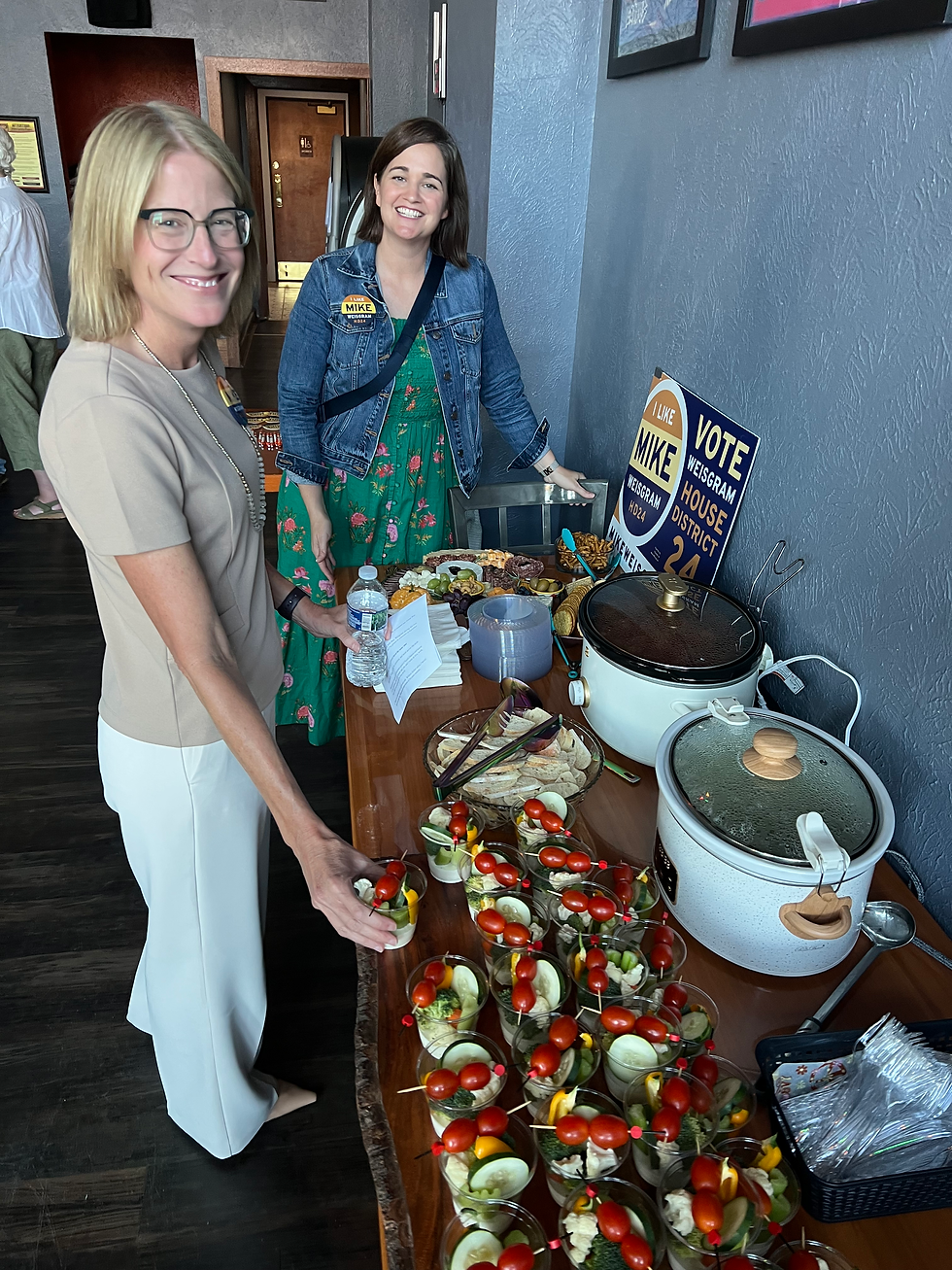Session 2023 – Legislative Report Week #7
- Mike Weisgram
- Feb 24, 2023
- 3 min read
With two weeks left in this year’s session, much has been accomplished. House and Senate members voted on the remaining legislation to usher them out of their house (House of Representatives or Senate) and into the other body. As we operate on a defined timeline to move legislation through both houses of the legislative branch, “Crossover Day” is a milestone
. By the end of the day, indications of where the House of Representatives were positioned on tax cuts and spending priorities became clearer.
As strong revenue from sales tax collections continues, House members voted overwhelmingly (66-3) to pass HB 1137 which would lower the general sales tax from 4.5% to 4.2%. This was passed in favor of two other tax cut proposals – the proposed repeal of the grocery tax (HB 1075) and the $300 property tax refund initiative (HB 1043). The arguments for cutting taxes in general are many, but it boils down to the numbers. It is apparent to our House appropriations committee that the State has more money than it needs to fund government. Personally, you should know that I voted in favor of HB 1137. However, I do have a nagging thought in the back of my mind that some of the revenue we are not going to collect could be invested into existing programs. At this time, spending priorities by House members will be determined and negotiations with the Senate will happen soon. Senate members and their appropriations committee have their own priorities and there will be interesting and meaningful negotiations. I view it like a tennis game, passing HB 1137 was the first volley in the match between the spending priorities of the Senate and the House. It’s really exciting to see the direction and culmination of a budget that will be balanced to fund government sufficiently and provide tax relief for South Dakotans.
Last week I mentioned HB 1217 and that I was receiving a fair amount of mail about it. The legislation modified the requirements for the eligibility to vote by absentee ballot and it came to a full House vote on Tuesday (and Wednesday). The legislation detailed that voters could only qualify for voting absentee, if the voter expected to be out of the county, state, or the United States on the day of any election. Or if illness, a disability, observance of a religious holiday, school attendance or employment conflicted with voting in person on an election day. Along with other restrictions, it cut down the time frame for absentee voting to begin from the existing 45 days to 30 days. I think the supporters of the legislation yearned for a time when voting day was more traditional, revered, and respected as an event that displayed enthusiasm and patriotism. Detractors of HB 1217 mentioned that absentee voting has become very convenient and fit the lifestyles of busy families. One constituent mentioned that he “should not be made to give a reason to vote absentee” and liked the current system. When the vote tallies were displayed on Tuesday afternoon, the vote was tied 35-35. We don’t see that very often! The bill sponsor moved to “reconsider” the vote and the next vote happened the following day (on Wednesday). This time the vote was 30 yea-39 nea, and the bill was defeated. I did not support the bill.
Thank you for the opportunity to represent District 24 and please don’t hesitate to contact me.
– mw





Comments